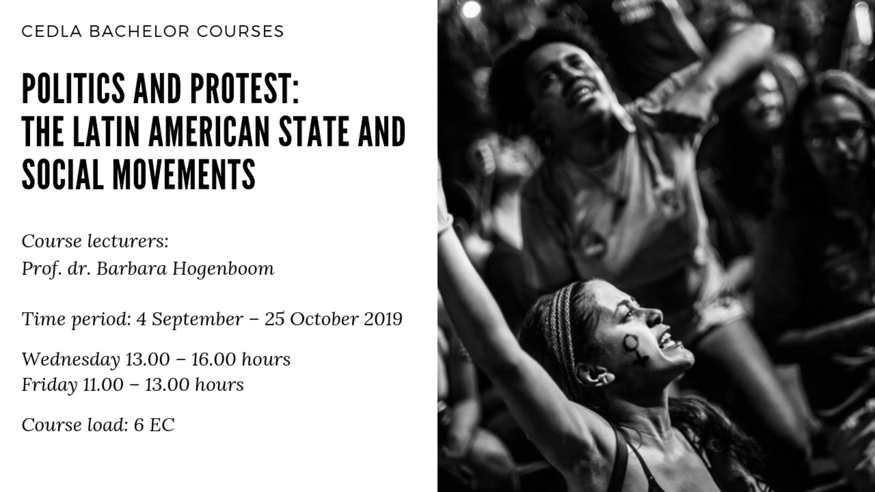Register now!

Course lecturer: Prof. dr. Barbara Hogenboom
Time period: 4 September – 25 October 2019
Schedule: Wednesday 13.00 – 16.00 hours; Friday 11.00 – 13.00 hours
Course load: 6 EC
UvA Course Catalogue Number: 137221016Y
MORE INFORMATION
Latin American politics is a puzzling field of academic study. On the one hand, political discourses and antagonisms are usually very outspoken, be it from activists or from presidents. Similarly, shifts of regimes and policies seem to have been more extreme than in other parts of the world, as in the case of both neoliberalism and ‘socialism of the 21st century’. On the other hand, political institutions and practices are also heavily influenced by undercurrents that are less visible yet powerful, such as corruption, a lack of trust and loyalty, and weak citizenship and rule of law.
The course deals with the causes, consequences and limitations of political turmoil and change in Latin America, with an emphasis on democratization, development policy and mobilization around ‘old’ and ‘new’ social and political issues, such as participation, human rights and justice. It also looks into revolutionary idea(l)s and emancipatory movements that have affected society and politics in the region. In order to understand recent events, we also need to look at dynamics of the past that continue to influence politics and protest: dictatorships and democracies, political legacies (authoritarianism, elitism, populism), social inequality, politicized state institutions and economic dependence on foreign capital.
PICTURE
License![]()
![]()
![]() Some rights reserved by midianinja
Some rights reserved by midianinja
Van 4 september om 13:00 t/m 25 oktober 2019 om 16:00

